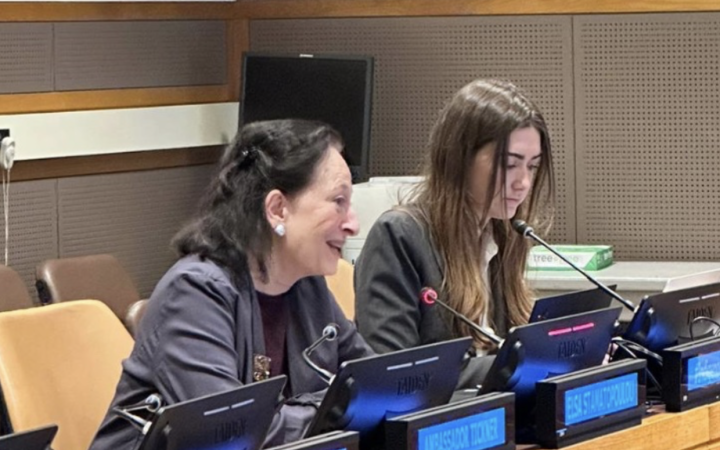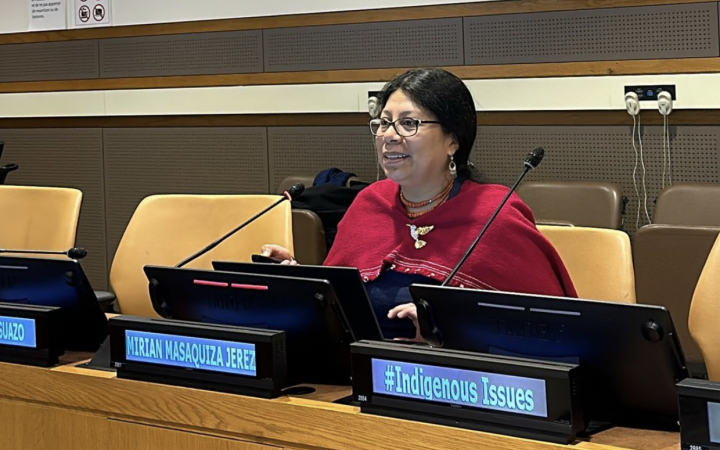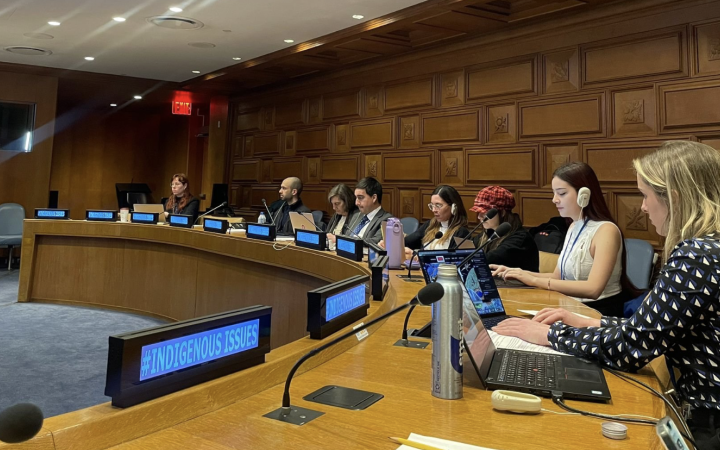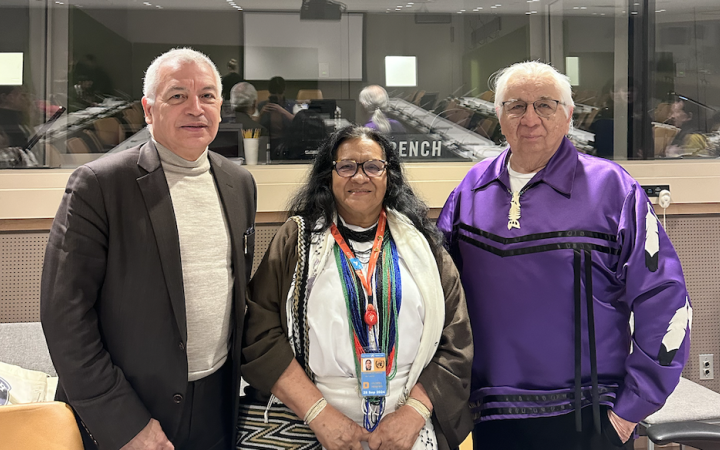Over 100 participants from several Member States attended this series designed to address the increasing recognition of Indigenous Peoples' contributions to global governance and multilateral processes and to mainstream Indigenous perspectives in UN discussions on key world issues. This training series occurred every Tuesday and Thursday over five modules in a hybrid format at the UNHQ in New York on 20, 22, 27, 29 February and 5 March 2024.
In light of the upcoming 23rd Session of the UN Permanent Forum on Indigenous Issues on April 15-24, 2024, the Indigenous Issues Training for UN Delegates and Staff, a collaboration between the Permanent Mission of Colombia and UNITAR developed this course. Emerging from the 2014 World Conference on Indigenous Peoples, the Indigenous Issues Training serves as an essential tool for promoting a more informed approach to addressing challenges affecting Indigenous Peoples, enhancing participants' understanding and skills in this vital area of global governance.
Mr. Marco A. Suazo, the head of the UNITAR New York office, and H.E. Ms. Arlene Tickner, the Deputy Permanent Representative of Colombia to the United Nations, inaugurated the seminar. In the first module, Institutional-Normative Framework on the Rights of Indigenous Peoples within the UN, Ms Elsa Stamatopoulou, the Director of the Indigenous Peoples' Rights Program at Columbia University, introduced participants to the institutional and normative framework that has been created by the United Nations system for recognizing and addressing the rights of Indigenous Peoples.
Ms. Mirian Masaquiza Jerez, the Senior Social Affairs Officer at UNDESA facilitated the second module: Indigenous Peoples’ Well-being, SDGs, and Summit of the Future. This module explored how Indigenous Rights are incorporated within the 2030 Agenda and the SDGs, and the contributions of Indigenous Peoples to the Summit of the Future.
The third module, Peacebuilding, featured facilitations from Mr. Devasish Roy, the Chief of Chakma Circle (Chakma Raja), Chittagong Hill Tracts (CHT); Advocate, Supreme Court of Bangladesh and Ms. Ana Manuela Ochoa Arias, the Court Magistrate of the Colombian Special Jurisdiction for Peace. This module seeks to explore the challenges faced by Indigenous Peoples in securing a just peace in conflict-ridden and ecologically fragile frontier areas, based on case studies in the common border between Bangladesh, Myanmar and India. Additionally, it evaluated the contributions of Indigenous Peoples to re-envisioning peace and to peacebuilding, based upon specific case studies such as Colombia in which they have played a key role.
Module four, Environment, Climate Change and Rights of Mother Earth, featured Mr John Scott, the former Chief of the Peoples and Biodiversity Unit at the Secretariat for Convention on Biodiversity, Ms Christine Grant, the Principal Director, CTG Services, and Ms Yolanda Teran, a Postdoctoral Fellow, Native American Studies, Kichwa. In this module participants examined the distinct contributions of Indigenous Peoples to addressing the multiple crises of the environment, including approaches to sustainability and recognition and defence of Mother Earth as a living being with rights.
In our fifth and final module, Dr. Kenneth Deer, the Chair of the Indigenous Temporary Committee, Coordination Body, presented and led a discussion on Indigenous Diplomacy. This module focused on Indigenous diplomacy from a Haudenosaunee perspective, the Ways of Peace, consensus building, who speaks for the Natural World, Enhanced Participation of Indigenous Peoples in the UN system, and related issues.
H.E. Ms. Leanor Zalabata Torres, Ambassador of the Permanent Mission of Colombia to the United Nations, joined the final session of this training series, providing insightful closing remarks on Indigenous Issues and the United Nations.





